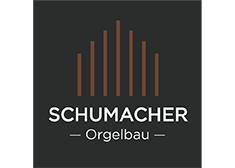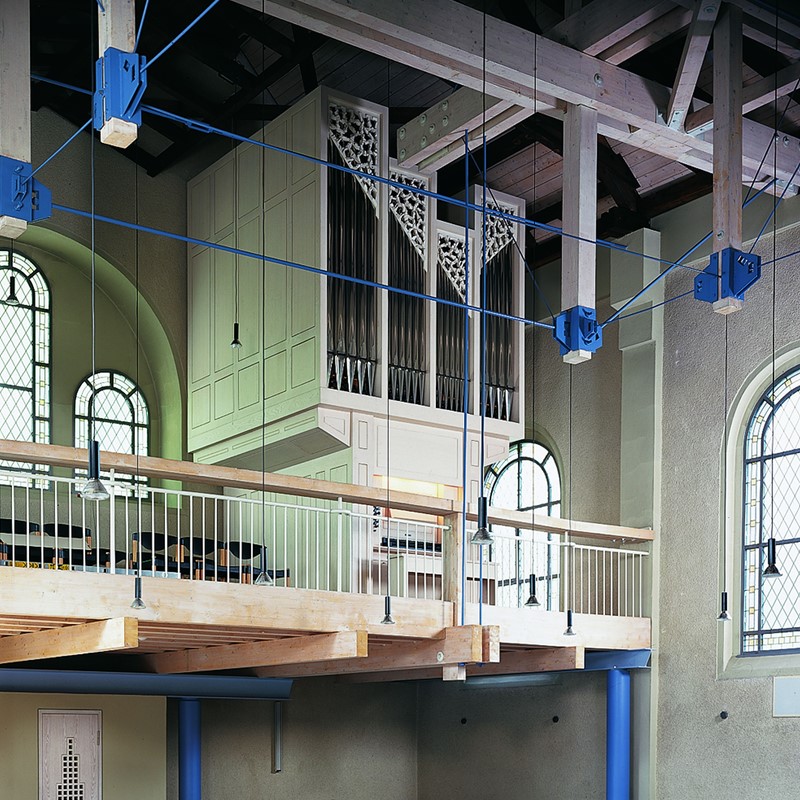Krefeld (D) | Sacred Heart
In the course of the fundamental rearrangement and decoration of the interior space, it had also been decided to buy a new organ. This had been carried out after the drawings of the architect Franz Jörissen according to the spirit of the liturgical reform of the second council of the Vatican which meant/implied a rotation of 90.
The erection of the organ on the right side of the gallery seemed to be the ideal solution since it was in perfect keeping with the requirements (enough place for the choir, good visual contact between organist and choir, the maintaining of the light incidence from the side an central church windows, in a word, the respect of the sacred, liturgical space.
The quite low height of the building led to a rather restrained voicing, however, with a marked singing character. The further discussions with Hans Steinhaus, the organ advisor, focused on the way to enlarge the basic French classical specification so as to avoid the simple reconstruction of a typical historical organ. Furthermore, the instrument had also to be typical of the organ builder, a native of the area between the Rhine and Meuse who had a very good knowledge of the regional organ landscape.
Stop list
Grand Orgue
Montre 8'
Bourdon à cheminée 8'
Prestant 4'
Flûte 4'
Nasard 2 ⅔'
Doublette 2'
Tierce 1 ⅗'
Sifflet 1'
Fourniture IV
Trompette 8'
Positif
Bourdon 8'
Flûte à cheminée 4'
Doublette 2'
Larigot 1 ⅓'
Cornet III
Cymbale IIII
Cromorne 8'
Pédale
Soubasse 16'
Flûte 8'
Flûte 4'
Trompette 8'
Manualkoppel
Pedalkoppel I / P
Pedalkoppel II / P
Tremulant

